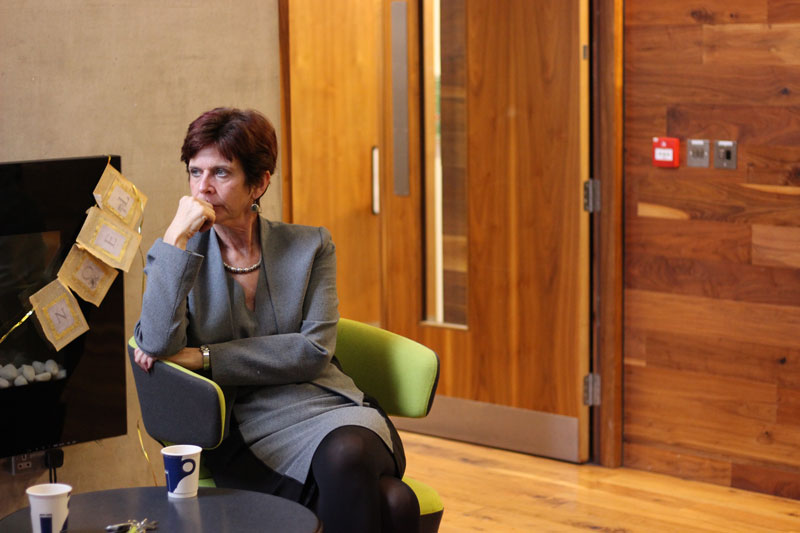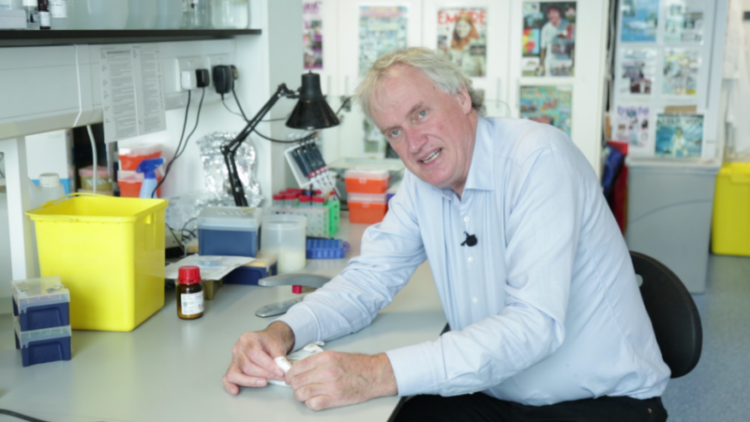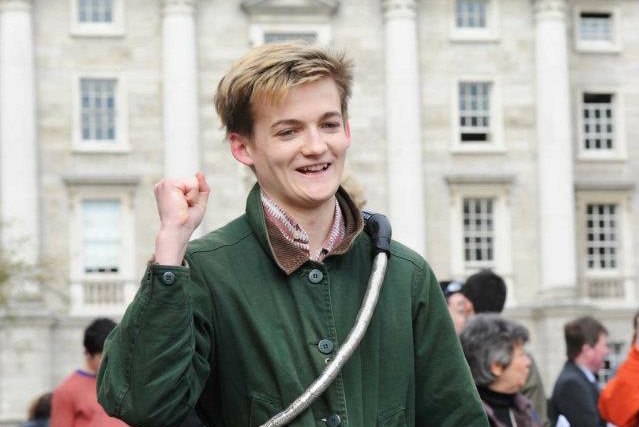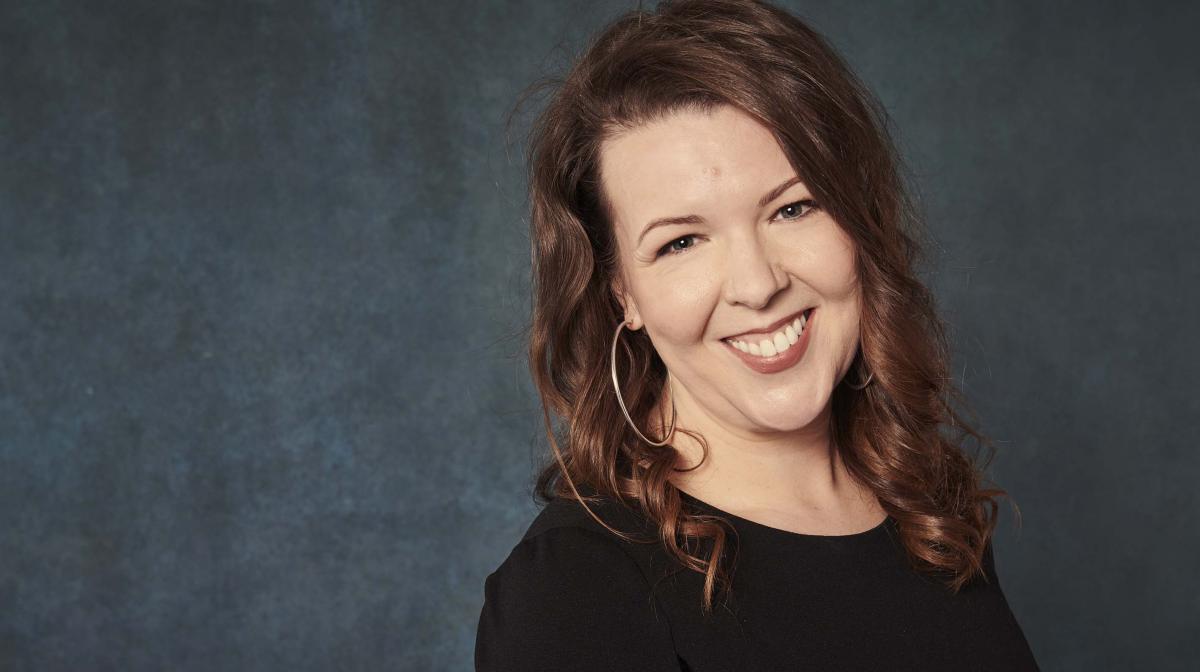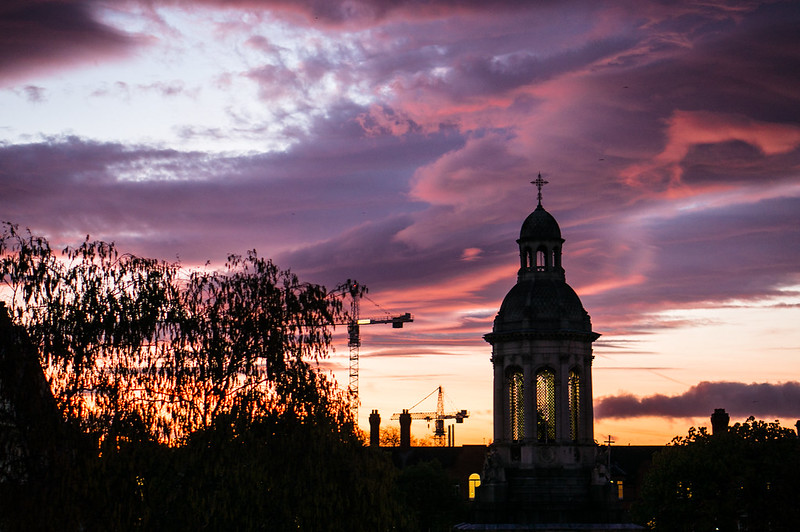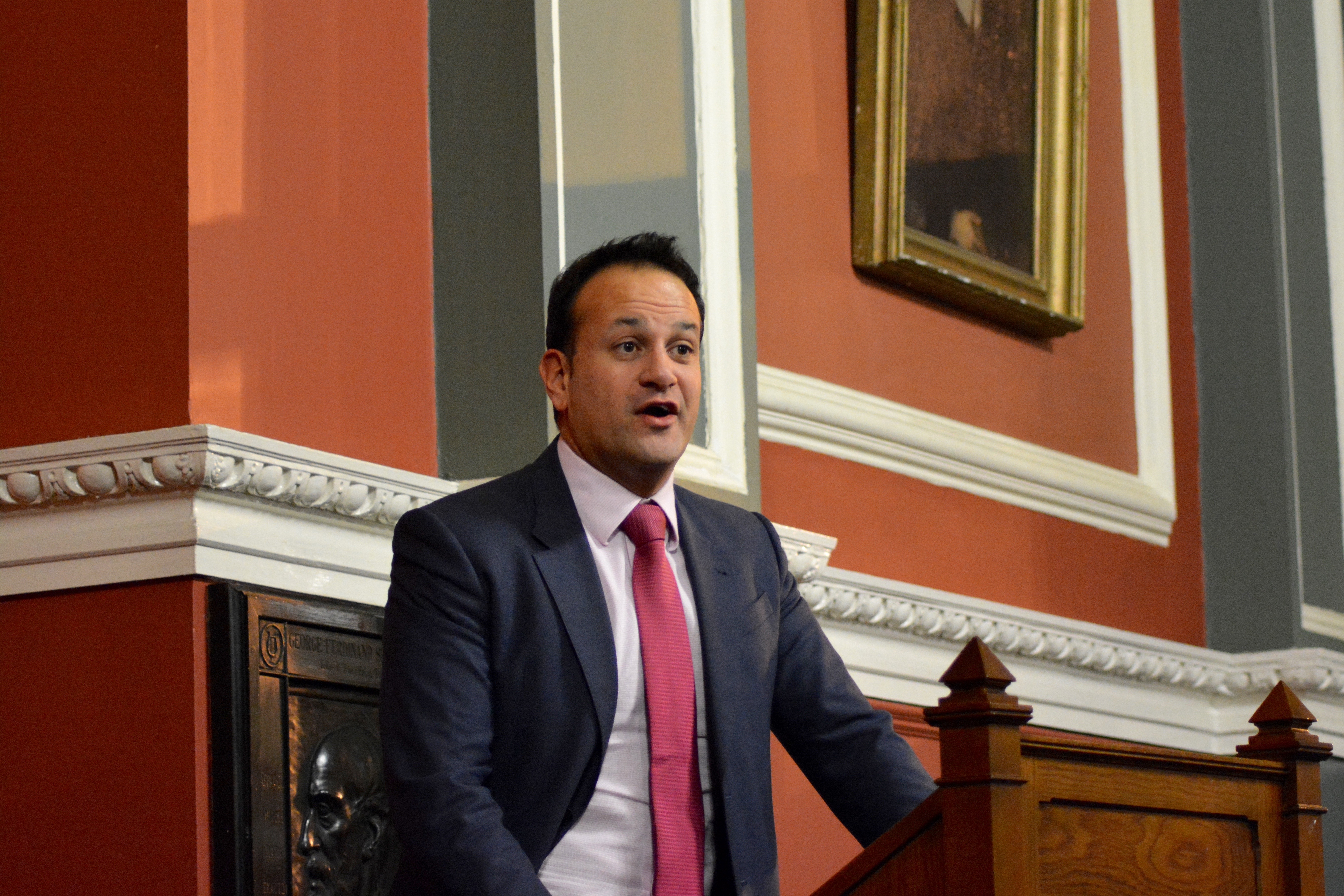When students knock on the door of the Vice-Chancellor of Oxford University, Prof Louise Richardson, with their various grievances and gripes about university life, they are often surprised by the receptive hearing that they receive. Richardson admits with a laugh: “People are somewhat surprised when, in my current position, I am quite sympathetic to student protesters.”
This understanding response from one of the most eminent and well-respected figures of contemporary academia, is attributed to the time that Richardson herself spent as a young student protesting on the cobblestones of Trinity, demonstrating against fees, social injustice and reduced library opening hours. When it comes to student protests, there is an element of plus ça change.
Hailing from Tramore, Co Waterford, Richardson studied history in Trinity before embarking on a glittering career, establishing herself as a trailblazer for female academics. After receiving a PhD from Harvard University in international relations and international law, she became Associate Professor at the university before becoming the first female Principal of the University of St Andrews, Scotland, as well as Professor of International Relations. Books, awards and plaudits arrived in the meantime for her astute observations on international terrorism.
Richardson’s latest appointment has taken her to the upper echelons of western academia, with her role as Vice-Chancellor of Oxford being “beyond imagination” for her former freshman self: “I was kind of hoping that I’d go into the Department of Foreign Affairs, insofar as I had a plan, that was probably it.”
Richardson’s chance reading of an advertisement in the Irish Times led to the then first-year student applying for a Rotary Foundation Scholarship, an opening that sparked the international career that followed. She admits to being very conscious of the fact that “as a girl from the country, most of my classmates were much smoother than I was”. However, she was awarded the scholarship and the accompanying opportunity to study for a year in the University of California, where she later returned to receive a master’s degree in political science.
In terms of the type of women I wanted to be, there wasn’t really any role models
Reflecting upon the benefits of studying at Trinity as an undergraduate, Richardson notes that “Trinity is a name that resonates globally”, a factor that she thinks is underestimated, but which was especially important considering the international aspect of her life. Meeting “so many people that were from different backgrounds” whilst in Trinity helped shape Richardson’s understanding of the world. While in the university, Richardson contends that she learned a “British version of Irish history”, completely different to the version she had learned in school. For Richardson, this was intellectually “enormously significant”, as she became fascinated of how two sets of people occupying the same small Ireland could have such different interpretations of the same historical events.
Richardson’s rise through the academic ranks could be said to be even more impressive given the absence of female role models for the young student in her future field. She recalls that there were only two women lecturers in her department, however, Richardson notes that “in terms of the type of women I wanted to be, there wasn’t really any role models”. Indeed, for incoming first-year students, Richardson stresses the importance for girls “to realise there are no barriers to what they can achieve”, and that it is important that male students see that “leadership comes in all genders, sizes and shapes”.
When it comes to her time in Trinity, Richardson is an easy and willing conversationalist. I find it striking how relatable her memories and experiences of the university are, which is an encouraging aspect when taking her glittering career into account. We reminisce about our time spent in rooms in Trinity, the highlights of Trinity Ball, and, like any good arts and humanities student, she contends that much of her learning came from outside the lecture theatre: “The more extra-curricular activities you engage in the better.”
Indeed, Richardson credits the anti-apartheid movement that she became highly involved in during her time in Trinity as having influenced her life and career in all kinds of ways that she “never could have imagined”. Comforting to note for any student prone to skipping a lecture or two in favour of a good rally on the cobblestones.
The world that faced Richardson and her fellow classmates at Trinity may now seem quaint to us righteous millennials, but while Richardson admits that “students are entering a very uncertain world”, she believes that it was “ever thus”. We discuss the terrorism of the 1970s, and while I ignorantly presume the premise of this conversation to be based on the Troubles in the North, I am treated to a list of the other alternative terror groups active throughout Europe at the time, by one of the leading scholars of international terrorism. I admit most of these groups to be hitherto unheard of by this final year law and political science student. Back to the reading list for me.
Do something that you love, and not worry too much about employability, because so much of what you learn at university is how to think
In the 1970s Richardson and her classmates also felt that the world was changing rapidly, but she contends that “we welcomed that”. Uncertain though the future may be now for current students, Richardson believes Ireland to be a much more exciting place for students: “More liberal, more diverse, less Catholic”, taking its place in a “more international world”.
As someone with experience in four higher-education cultures, namely the US, Ireland, England and Scotland, Richardson believes that university is a time “to do something that you love, and not worry too much about employability, because so much of what you learn at university is how to think … and it’s more important to do something that you care about”.
Given the life that she has led, it is perhaps unsurprising that Richardson is upbeat and optimistic in her advice for first-year students: “Absolutely don’t hold back – any time you see an opportunity take it, try out new things … get out of your comfort zone.” She advises students that it is critical to “invest time in forming friendships” as these are what “sustain you through life, making life fun and interesting”.
If you are a first-year student worried about asking your fellow classmates to go for that terrifying first coffee, signing up for that society, or going to that protest, take the advice of the Vice-Chancellor of Oxford University: “Don’t hold back”. You won’t regret it.
